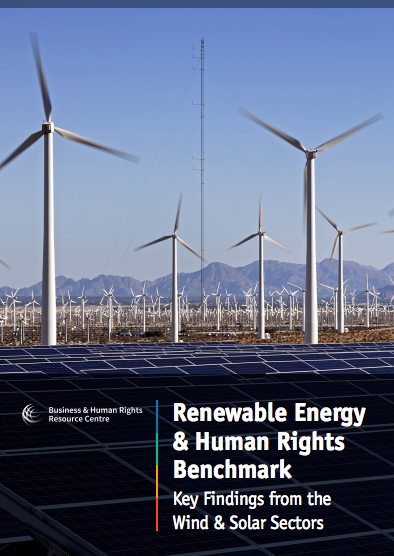Climate change is among the most important and complex issues our planet and its people have faced in centuries, and the COVID-19 pandemic has only reinforced the urgency and necessity of building global economic systems that are both equitable and sustainable. The deployment and expansion of renewable energy technologies will play an integral role in reducing our collective carbon footprint, but can come at a cost for workers and communities if companies do not ensure respect for human rights in their operations and through their supply chains. The ambitious and necessary goal of achieving carbon neutrality by 2050 requires equally robust steps to ensure this transition is truly just. The results of the benchmark suggest that none of the companies analysed are currently fully meeting their responsibility to respect human rights, as defined by the UN Guiding Principles. Nearly half the companies benchmarked (7/16) scored below 10%, with three quarters (12/16) scoring below 40%. The average score was just 22%, indicating that, as a whole, the industry has a long way to go to demonstrate its respect for the human rights of communities and workers in their operations and supply chains.

